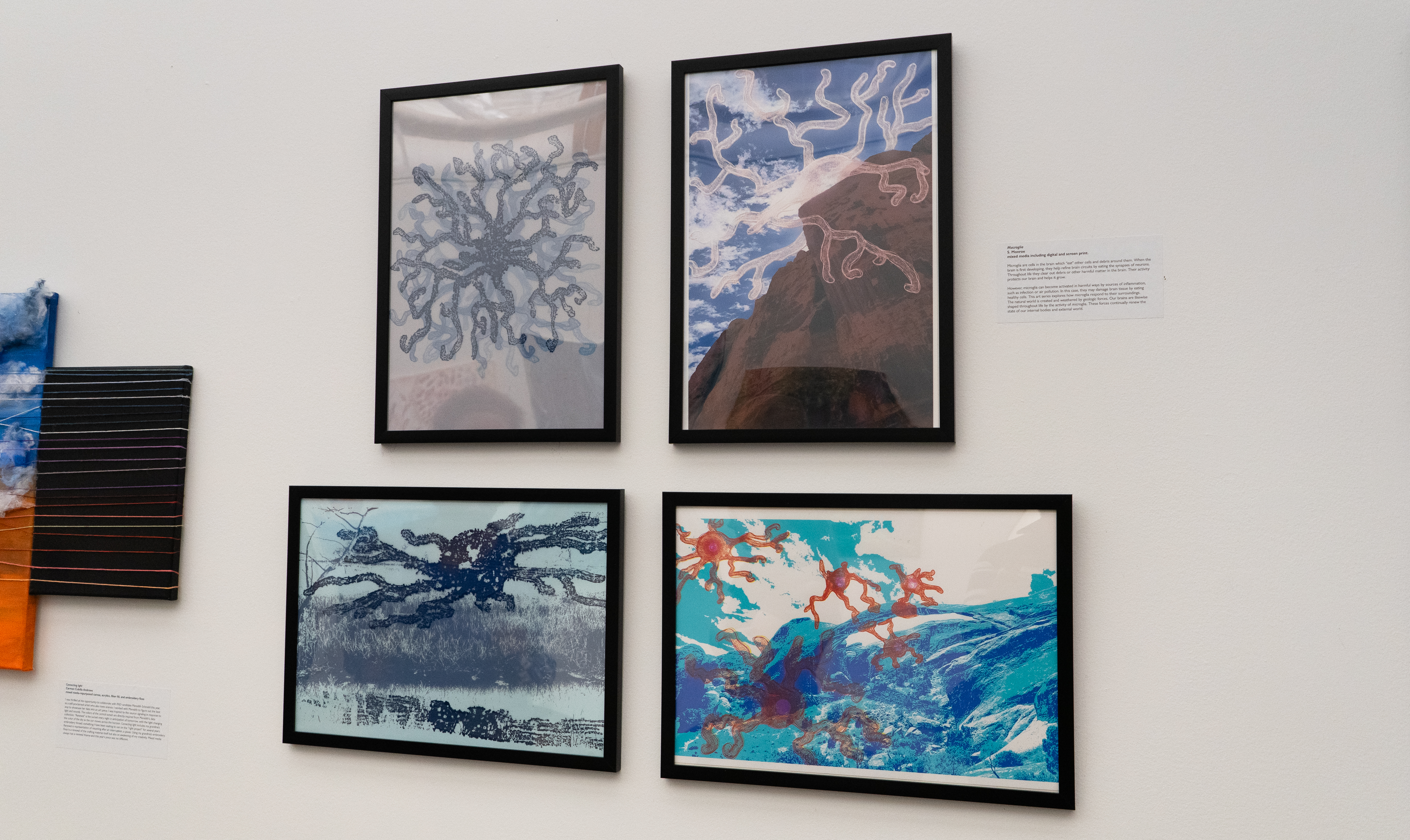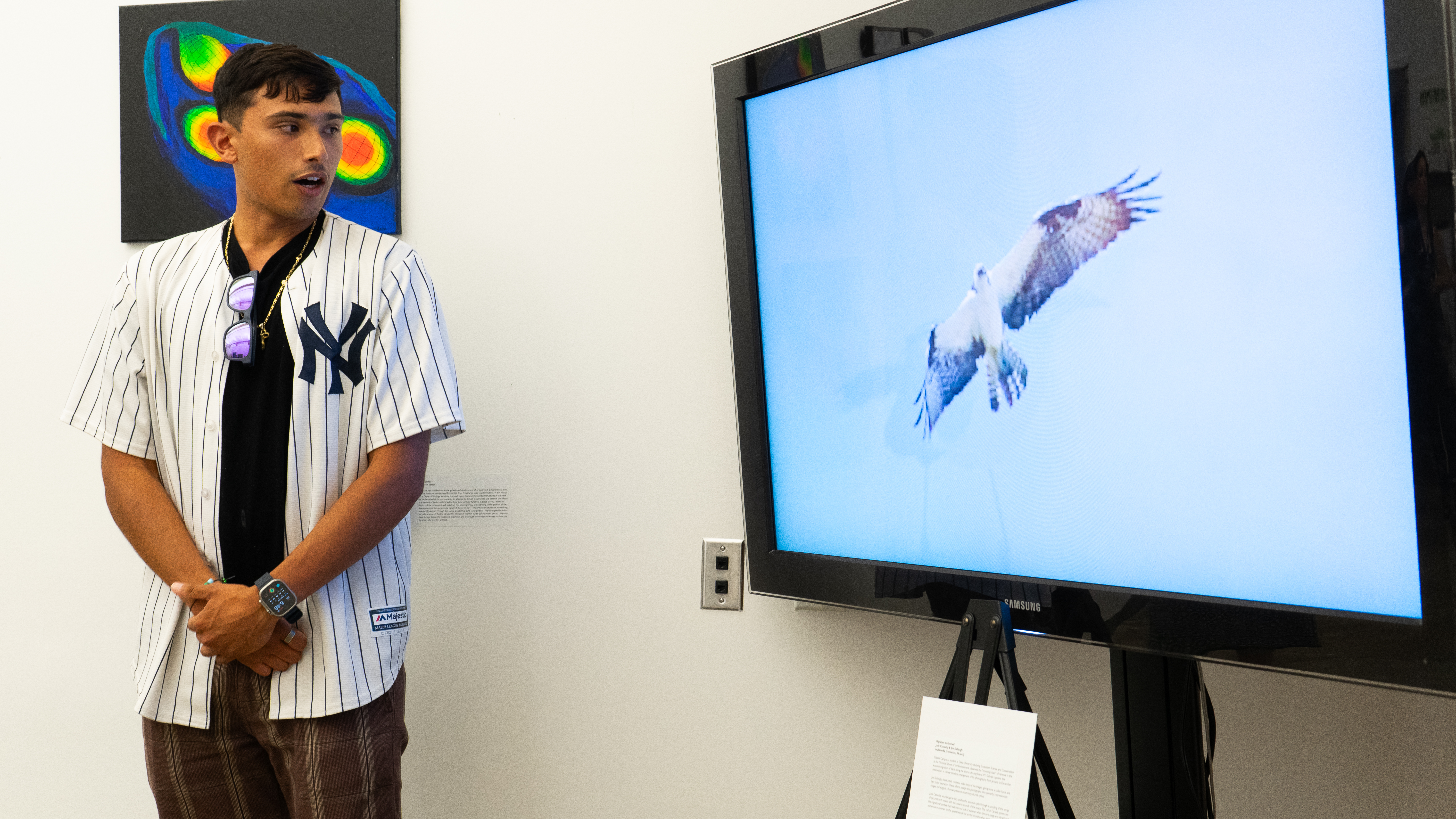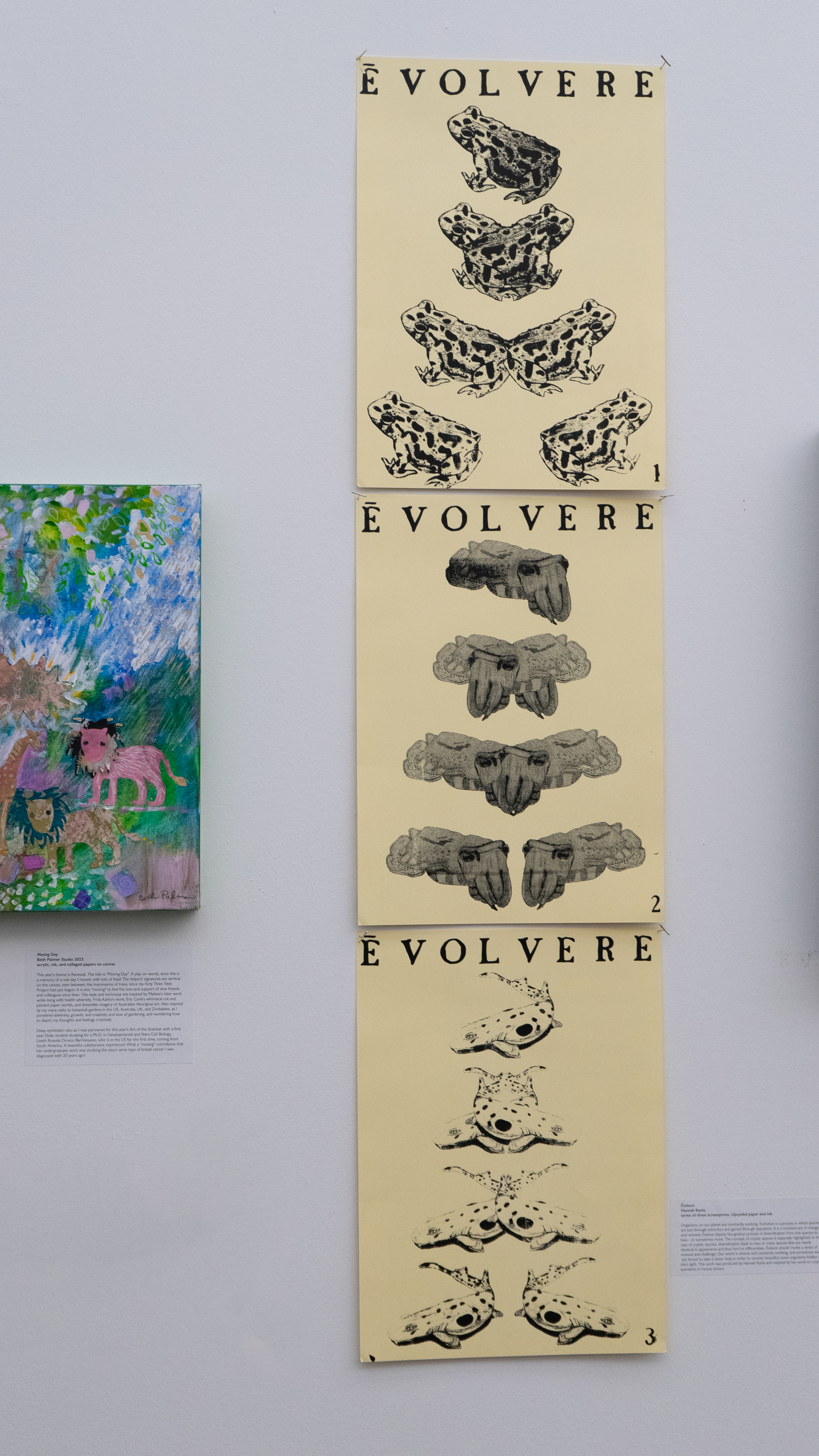Behind the Scenes: Art of a Scientist's Return
By Nwabata Nnani
An annual exhibit showing collaborations between researchers and artists at Duke University is back from a pandemic hiatus, focusing on the concept of renewal.
October 18, 2023
Science Culture Art Communications

Image by Nwabata Nnani.
In 2018, Elon University’s Ariana Eily teamed up with two Duke University graduate students, Casey Lindberg and Hannah Devens, to bring together Durham, NC, artists and scientists to engage the public in research ideas and explore creativity and visual communication through original works of art. The pandemic temporarily halted the group, but now they are back. The Art of a Scientist exhibit makes its return with the theme Renewal.
”Like spring after a long winter, Renewal is the return to something after a disruption, a crucial process in life whether watching trees bud bright green in the sunshine or animals return from migration, or even humans and how we find a return to ‘normal’ after something has shaken our world,” says Raven Luo, a graduate student and program manager.
Hannah Medsker (above) created five drawings to promote the Sustainable Development Goals (SDG). Set in 2015, the year the United Nations initiated the 17 goals, each piece incorporates the official SDG logo as the “overarching design construct,” according to Medsker, who integrated key sustainability targets into the art. “This summer marks the halfway point between 2015 and 2030,” she adds, “the year by which these goals are meant to be achieved. At this point, I hope all members of the Duke community can renew their dedication to protecting our planet and all of its people.”

Photograph by Nwabata Nnani
A piece by S. Monroe, a graduate student at Duke University, entitled Macroglia uses mixed media including digital and screen print to illustrate microglia, brain cells that “eat” other cells and debris around them. Monroe further explains that “when the brain is first developing, they help refine brain circuits by eating synapses of neurons.” Homing in on the Renewal theme, microglia clear out debris or other harmful matter in the brain, protecting and aiding its growth throughout life.

Image by Nwabata Nnani
Gabriel Campos, a student at Duke University studying ecosystem science and conservation, collaborated with artists Jude Cassidy and Jim Kellough on Migration as Renewal. Campos observed what he calls the “revolving door” of renewal in the migration of birds along the shores of Long Island, NY. The observation is arranged in a linear timeline of photography from January to December.

Image from Nwabata Nnani
Hannah Kania, a Duke University student and past participant in Sigma Xi’s #SciCommMake program, was inspired by her work with cryptic speciation in the mouse lemurs to create Ĕvolvere, a series of three screen-prints using upcycled paper and ink. According to Kania,
“Ĕvolvere depicts the gradual process of diversification from one species to two—or sometimes more…Ĕvolvere should invoke a sense of renewal and challenge. Our world is diverse and constantly evolving, and sometimes we are forced to take a closer look in order to uncover beautiful, novel organisms hidden in plain sight.”

Image by Nwabata Nnani
Although the artist was not in attendance, my personal favorite piece was Moving Day by Beth Palmer Studios. Moving Day, explained as “a play on words,” draws from the memory of a real day when Palmer moved out of the hospital after a lengthy battle with breast cancer. Palmer was partnered with Liseth Rossela Orosco Barrionuevo, a first-year Duke PhD student in developmental and stem cell biology. The collaboration was moving for both parties, as Barrionuevo’s undergraduate work focused on studying the same type of cancer Palmer was diagnosed with 20 years ago.
The fourth installment of the Art of a Scientist exhibition highlighted the continuously evolving connection between art and science, revealing the various ways we perceive the artistic aspects of factual information.
American Scientist Comments and Discussion
To discuss our articles or comment on them, please share them and tag American Scientist on social media platforms. Here are links to our profiles on Twitter, Facebook, and LinkedIn.
If we re-share your post, we will moderate comments/discussion following our comments policy.